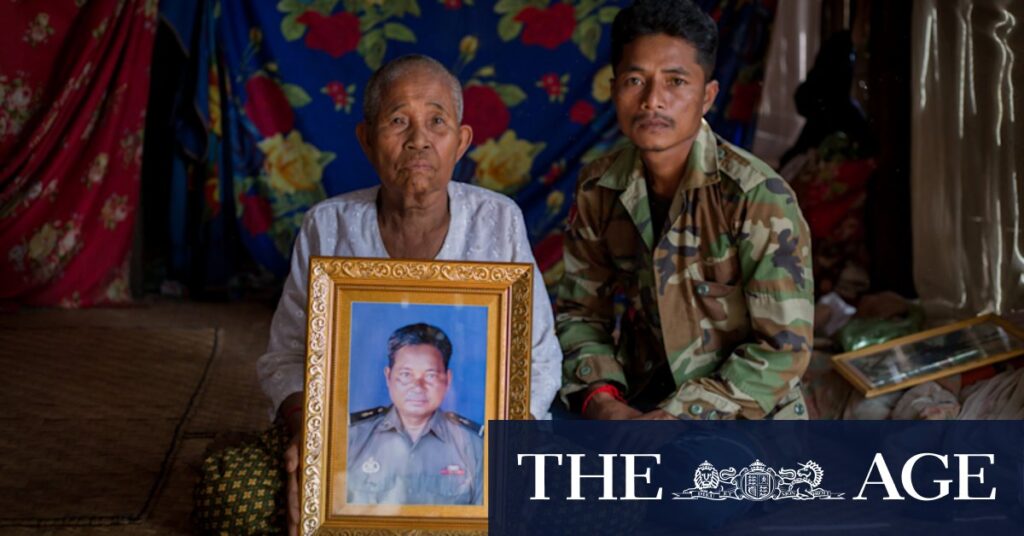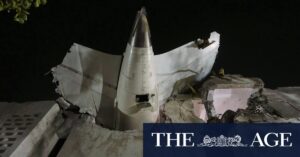
By first light on May 28, the men of Cambodia’s Battalion 395 were stirring from their remote jungle beds. Some were taking their morning coffee near a mountaintop trench, while others were pulling on uniforms. As Thai soldiers approached through the dense foliage, tensions flared in the contested mountains and passes of the Emerald Triangle, where Cambodia, Thailand, and Laos loosely meet. The clash that ensued left Cambodian Second Lieutenant Suon Roun dead, a casualty of the long-standing territorial disputes in the region.
The incident has ignited nationalistic fervor in both countries and led to significant political repercussions in Thailand. On Tuesday, a Thai court ordered the suspension of Prime Minister Paetongtarn Shinawatra, pending a decision on whether to remove her from office over a controversial phone call with Cambodia’s de facto ruler, Hun Sen. The political and military tensions between the two nations have once again brought the spotlight on the fraught history and complex dynamics of the region.
Border Tensions and Historical Disputes
The border clash is the latest in a series of skirmishes over disputed territories in the Emerald Triangle. The area has been a flashpoint for decades, with both nations laying claim to various tracts of land. The recent encounter began when Cambodian troops reportedly entered a disputed area, prompting a response from Thai forces. According to Thai military spokesman Major General Winthai Suvaree, Cambodian troops violated “existing agreements,” while Cambodia maintains it has occupied the trench in question for years.
Winthai stated, “Upon arrival at the location, the Cambodian security troops misunderstood the situation and initiated the use of weapons.” The Thai side, he added, returned fire in response. The exchange, lasting about 20 minutes, ended when Thai soldiers signaled for negotiations. Both sides have since imposed border closures and restrictions, with Cambodia even banning Thai movies and soap operas.
Political Repercussions in Thailand
The incident has taken on global significance due to the suspension of Thai Prime Minister Paetongtarn Shinawatra. Thailand, a major Southeast Asian economy, is strategically positioned between Cambodia, often seen as a client state of China, and Myanmar, a nation in turmoil. The Shinawatra family’s political dynasty, which has dominated Thai politics for decades, is now facing unprecedented challenges.
Paetongtarn’s suspension is linked to a phone call with Hun Sen, raising questions about her leadership and the influence of foreign powers in Thai politics. The Constitutional Court’s upcoming decision could have far-reaching implications for the country’s political landscape.
The Human Cost: A Family’s Tragedy
For Em Heap, the mother of the deceased Second Lieutenant Suon Roun, the political intrigue is of little interest. Living in a small wooden home in Kampenh village, Cambodia, she has outlived eight of her twelve children. Her family’s tragic history includes losses to the Khmer Rouge regime and the harsh realities of rural life.
Suon Roun, who joined the military in 1996, was dedicated to his country, rarely returning home. His death is a poignant reminder of the personal toll of geopolitical conflicts. “I feel very upset – I have lost so many children,” Em Heap shared. “I feel so sorry [that Suon Roun] was killed, not only him but my other children.”
International Implications and Future Prospects
The border dispute has drawn attention to the unresolved territorial issues in the region. The International Court of Justice has previously ruled in favor of Cambodia regarding the Preah Vihear Temple, but other areas, including the Ta Muen Thom temple, remain contested. Cambodia is seeking further adjudications, highlighting the ongoing challenges in achieving lasting peace.
Meanwhile, Cambodian Prime Minister Hun Manet, son of Hun Sen, has taken steps to support Suon Roun’s family, sending funds to build a larger home. This gesture underscores the complex interplay of politics, personal loss, and national pride in the region.
As Thailand awaits the Constitutional Court’s decision on Paetongtarn’s fate, the border tensions continue to simmer. The outcome could reshape the political dynamics in Southeast Asia, with potential implications for regional stability and international relations.







